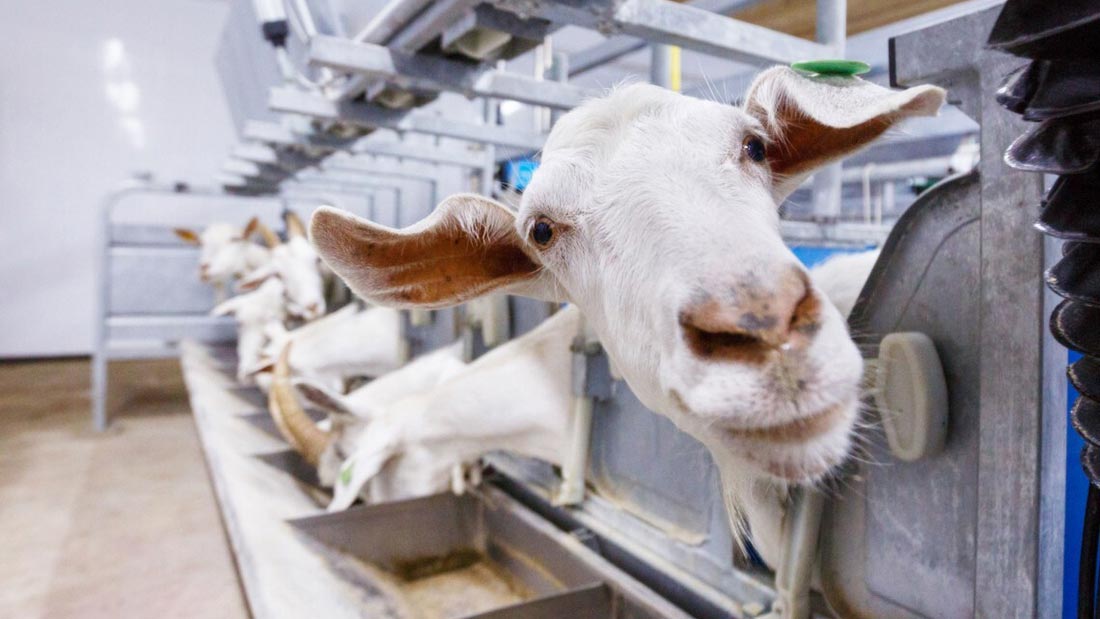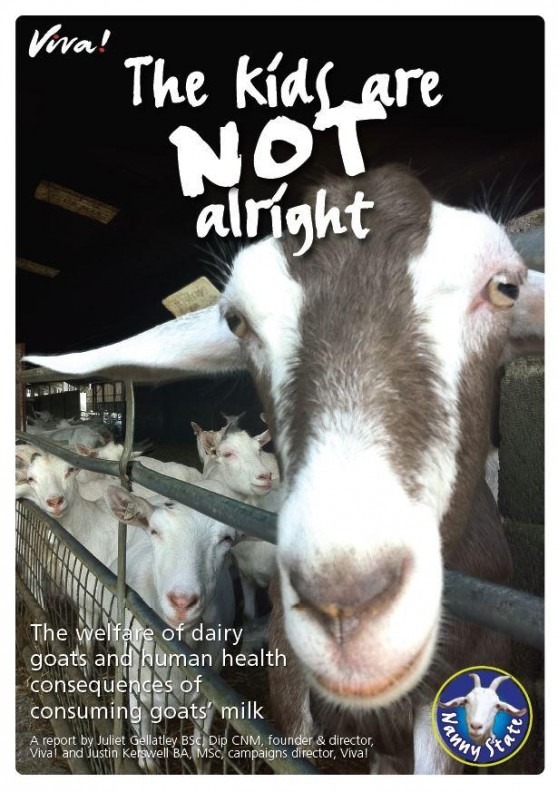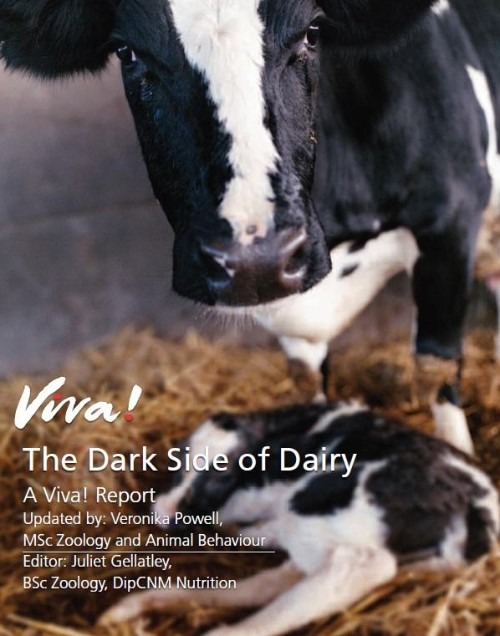Goat’s milk comes from happy animals on small rural farms. Right? Well, that’s what the industry wants you to believe. However, you don’t have to scratch very far beneath the surface to find a far more unpalatable truth. In short, the kids are not all right.
Many people switch from cow’s milk to goat’s because they think it’s more humane. The irony is that all the problems that exist to produce cow’s milk exist in goat farming, too. Mothers and kids are separated after a few days so her milk can be taken. Females are used to replenish the herd, but males can’t produce milk – they are either killed at birth or kept for meat for the growing ethnic market. Almost all kid goats suffer at least one painful mutilation – and often without anaesthetic.
Worried about zero-grazing for cows? It’s already here for goats. Many herds run to over a thousand animals and these inquisitive, fun loving animals are increasingly housed all year round in intensive sheds.

A Viva! undercover investigation uncovers the death, mutilation and disease that goes into producing goat’s cheese tartlet (not to mention the pus, fat and cancer promoters).
But it’s healthy…
If you think that goat’s milk is the healthier option… think again. The claims by goat’s milk advocates don’t stand up to scrutiny. It has virtually the same lactose content as cow’s milk; it is unlikely to be less allergenic and also, just like cow’s milk, goat’s milk contains growth factor IGF-1 and oestrogen – both of which can increase the risk of certain cancers.
Goat’s milk is also high in saturated fat and generally contains a higher amount of somatic cells than cow’s milk. In other words contains even more pus. Yuck!

The reality of dairy goat farming in the UK.
Goat’s cheese and milk is becoming increasingly popular amongst consumers; with many mistakenly presuming that the welfare problems inherent in the milking of dairy cows do not apply to goats.
The truth is that British goats suffer as much as dairy cows: with their babies taken away from them almost immediately (the females to replenish the herd and the males either killed at birth or kept for meat). Also, animals uniquely suited to thriving on tough, mountainous terrains are increasingly kept indoors their whole lives in massive zero-grazing units.
Did you know that goats have different accents, along with elephants, dolphins and humans?
Find out more about goats including fun facts, the natural lives of goats and how goats are farmed »








